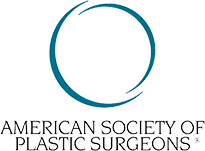Reconstruction Does Not Impede Chemotherapy, Recovery or Diagnosis of Reoccurrence
For Immediate Release: November 6, 2002
SAN ANTONIO – Debunking the myth that women with locally advanced breast cancer must wait until after chemotherapy to have their breast reconstructed, a study presented today at the ASPS/PSEF/ASMS 71st Annual Scientific Meeting in San Antonio found that immediate free flap reconstruction for women with breast cancer is safe and psychologically beneficial.
The study, which followed 170 patients with locally advanced breast cancer, found that immediate reconstruction did not delay post-operative chemotherapy, prolong recovery or hinder the diagnosis of local cancer reoccurrence.
“Losing a breast is traumatic,” said ASPS Member James Watson, MD, and participating surgeon in the study. “As a board-certified plastic surgeon, I wanted to ensure that immediate breast reconstruction was safe for my patients and would make the healing process easier. The findings in this study will allow women to start healing sooner psychologically, knowing that their decision will not impede their physical progress against breast cancer.”
The paper states that women participating in the study were pleased with their immediate reconstruction experience, indicating an immeasurable emotional benefit patients gain by having the reconstruction right away.
According to the findings, the majority of patients were either satisfied or very satisfied with their reconstruction and, if they had to, would have it done immediately after their mastectomy again. Also, the majority of women agreed they would recommend immediate reconstruction to a friend or colleague.
Through the study, Dr. Watson found that immediate free flap reconstruction – where a section of muscle, fat and skin are removed from the abdomen, buttocks or thigh regions and reattached in the breast using microsurgical techniques – resulted in similar complications and delays of post-operative chemotherapy to patients who delayed reconstruction. The most common postponement for patients was waiting for the wound to heal. However, the maximum delay was only three weeks, which did not have significant oncological impact on their post-operative therapy.
Also, while there were local reoccurrences of the cancer, physicians were able to diagnose the cancer’s return quickly, resulting in no delay for additional treatment. Most local reoccurrences were located at the mastectomy scar or in the mastectomy flaps, which could be diagnosed by a physical exam and biopsy.
“An added benefit to reconstructing the breast immediately is that it’s easier for the oncology surgeon to complete the mastectomy. Often, the breast cancer is so large or involves so much skin that the surgeon has to remove additional skin in the region, making it difficult to reserve enough tissue to close the wound,” stated Dr. Watson. “With immediate reconstruction, the oncologic surgeon can eliminate more breast skin to ensure the cancer is removed and use the skin from the free flap procedure to close the wound.”
The American Society of Plastic Surgeons is the largest organization of board-certified plastic surgeons in the world. With more than 6,000 members, the society is recognized as a leading authority and information source on cosmetic and reconstructive plastic surgery. ASPS comprises 94 percent of all board-certified plastic surgeons in the United States. Founded in 1931, the society represents physicians certified by The American Board of Plastic Surgery or The Royal College of Physicians and Surgeons of Canada.
